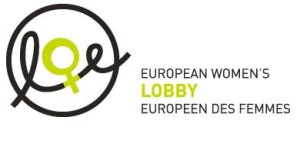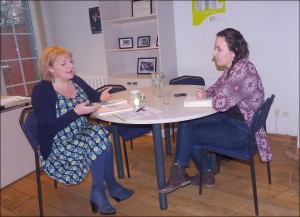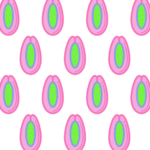Joanna Maycock, Secretary General of the European Women’s Lobby (EWL) talks about her position, feminism in Europe and women in political decision-making roles. At the European Women’s Lobby Joanna fights for a feminist vision of Europe, women’s rights and gender equality.
Can you tell us about the current situation of women in Europe?
Women’s actions have been successful over the last 50 years in Europe and transformed women’s rights. But for the last 10 years we have seen a stagnation of progress when it comes to gender equality in the European Union as a whole. Whether you look at measures to tackle the pay gap, ending violence against women or increasing the amount of women in politics we haven’t seen a lot of progress. Women have been disproportionately impacted by austerity measures across Europe and women’s organisations have seen their already meagre budgets further slashed.
How does the European Women’s Lobby support women’s organisations and women’s actions?
Last year we did a rethinking and sharpening of our collective vision and mission. It was a real opportunity to both affirm our vision for a feminist Europe and also to come together around a collective voice, what we want to achieve and how we seek to achieve that together. It was kind of an evolution that builds on our knowledge, expertise and capacities to influence and advocate for change on a European level. It also refreshes our common understanding on how change happens and it strengthens our analysis of power within that thinking. We have to ask ourselves who has power and how do we change power? Not only the power over and the power to dominate but also the personal power and the power with others that helps bring positive change.
In your opinion, why do we need a feminist Europe?
It is important for the struggle for women’s rights that women have a good education, access to contraception, and an understanding of their sexual and reproductive rights. In most European countries we already have these rights but progress has stagnated in relation to women’s rights. What we want to see is the feminist transformation of political and economic decision-making that challenges our patriarchal society which currently perpetuates inequality and violence against women. We have to think much more about how we strengthen our feminist movements nationally, at the European level and internationally. Also we need to ensure that we are inclusive and can diversify to make sure that we represent feminisms and intersectional feminism.
Can you tell us where young feminists stand nowadays?
I’ve been a feminist all my life. One of the things that impressed me over the last five years was a resurgence of feminism and a stronger feminist voice all over the world. We have seen a stalling of progress of women’s rights but there is this vibrant new voice that is challenging, in multiple ways, the dominance of white men in power in our society. I think that really inspired me and further from this, I noticed a generational shift that opened up feminism. Nowadays we have the situation where women have access to higher education and you can see role models in every single aspect of life. This wasn’t the case when I was privileged enough to attend university. We have more opportunities than ever to question the status quo and yet with economic neoliberalism, austerity, racism, sexism and other forms of oppression we have seen that the advance of women’s right has stagnated. I believe this is where frustrations are coming from. We have now a new generation of women expecting a certain degree of equality and then we are realising that they are not experiencing that.
Last year in September the European Women’s Lobby organised the first young feminist summer school. Why did you especially focus on young feminists and what was the aim of the summer school?
The feminist summer school was very much designed for women to come into that space and to lead, to feel empowered and to be part of a community they built themselves. We tried to bring a diversity of European nationalities aged between 18 to 30 with different experiences and backgrounds. I remember that the participants had been together less than 24 hours and they had already asked me if they could do a flash mob in the European Parliament as a feminist response to the situation of migrants. The participants have gone on to be active and connected in all kinds of spaces which is a real inspiration to me. I believe if you give trust to young people and believe in and give them the right kind of space and encouragement it is amazing what they can achieve.
This month on European Young Feminists we focus on the topic “Women in Power and Decision-making”. There have been encouraging signs in recent decades with more women becoming involved in European politics. Why do you think it is important to have equal representation of young women and men in politics?
I believe when we look at political decision-making we also have to look at economic decision-making. We have the lowest scoring of the European Gender Equality Index in power and time and they are both very related. Power focuses on the representation of women and men in decision-making positions. In some European countries today women make up only 10% of national parliaments. In Europe on average women make up around 26% of the members of national parliaments. Therefore, 74% of the members of national parliaments are men. This is unacceptable.
We are facing a question of democracy, diversity and good decision-making. In the 21st century we are in desperate need of new kinds of leadership. Things are just not working for the majority of people and they are not working for our planet. We have massively growing inequality, climate change is happening and we are failing to deliver the decisions we need to address these problems. The wealth and money is concentrated in ever fewer hands. We are dismantling our fantastic welfare state systems which were built to protect and advance human rights. There is a crisis of democracy and decision-making in our economic and political systems. We need a new approach to society and for that we need young people and new systems. And we can ask ourselves: Is the current leadership system with 74% of men in parliaments and 80 % of men on boards working? And the answer is no. We have to ask ourselves: Is it democratic? Is it diverse? Is it creating the best conditions for decision-making? Again, the answer is no. It’s a question of rights, fairness, good results and good leadership. If we want to redistribute power, resources and money we need to distribute decision-making roles.
Despite improvements, young women are still underrepresented in the European Parliament and many of the top influential decision-making positions in European politics such as the European Commission or the European Central Bank are mainly occupied by men. What do you think are the most significant barriers for young women to become political leaders?
One of the main barriers is patriarchy. It is about the image and the holding of power by men of a certain class and race. It is the structures we live with, our image of leadership and political life. Our systems and institutions of political decision-making are shaped by men for men. It has to do with the way political parties are structured and the way we frame leadership. Powerful institutions are sexist in the way that women’s voices aren’t heard or how they are spoken about or how and when meetings are organised. Here I’d like to quote Laura Liswood, Secretary General at the Council of Women World Leaders, who said “there is no such thing as a glass ceiling, it’s just a thick layer of men”.
Watching the #leadersdebate? Have our handy #politicalsexism bingo card at the ready pic.twitter.com/zzAZizp0KD
— EverydaySexism (@EverydaySexism) April 2, 2015
We have barriers within institutions and political parties but women are also barriers in themselves. A lot of women don’t want to put themselves forward and mostly because of very rational reasons. For women it is twice as hard to get (s)elected and they are more likely to be exposed to harassment and violence. Taking into account unpaid and paid work, women often do have less time to build relationships within political parties and to go out campaigning. Women have less money and a political process costs money. This is clearly a massive gender problem but there are also class, race, migration and ability issues to consider.
In your view, what measures need to be taken to involve more women in decision-making processes?
We need to introduce quotas. Nobody likes quotas but the fact is that we make progress where there are quotas. With voluntary quotas we haven’t seen the same progress. As a British person, people always mention Margret Thatcher to me as an example of somebody who advance gender equality or women’s rights. When she became Prime Minister there were only 3% of women in Parliament. Only 19 women sat in the UK Parliament, out of 720. The reason why this has changed is because the Labour Party introduced a system of ‘all women short lists’ within their party. This leads to more women in politics, better decision-making and more diversity. If you have quotas for women, the evidence suggests that you increase all other forms of diversity too.
How does the European Women’s Lobby promote gender equality in European politics?
Within the European Women’s Lobby we have campaigned for many years to have more women in politics. At the moment in the European Parliament there are 36% female and 74% male MEPs. This is actually a lot better than in most national parliaments. There has been progress at every election, but only by 1.5% at the last one in 2014. The speed at which things improve is too slow. We want to see a 50:50 distribution; 36% women is therefore not good enough.
What we have worked on in the past is a mentoring program for women with a minority background who want to go to politics. They were trained in the areas of media, campaigning and public speaking. But it is also important to address those who are in executive decision-making positions. We also campaign for a 50:50 European Commission. Despite the fact that the Commission President Jean-Claude Juncker offered incentives to Member States to present women candidates, there are less than 30% women in the European Commission. What we would like to see is a model where each Member State has to present a female and a male candidate. It is then up to the President to choose for parity of the entire European Commission.
Is there anything else you’d like to share with the European Young Feminists readers?
Female representation in politics is crucial, but we have to focus on women in a broader sense of decision-making. We also have to look at women in the police, at universities, in selection committees, courts, banks, the media and so on. At the European Women’s Lobby we talk about putting women at the heart of decision-making. This also means that we have to reshape institutions to allow women’s voices to be heard. The current crisis, the rise of right wing and fascist parties show the cracks of the system and we have to see this as an opportunity for an alternative. Here feminism represents a really exciting and holistic personal, political and environmental response to transform the society for the benefit of everybody. Young women need to be at the centre of this transformation.








[…] Interview with Joanna Maycock on failing leadership in Europe and what feminism can do about it […]